Roundtable Dedicated to the ‘Reform of Legal Education in Ukraine’ Took Place
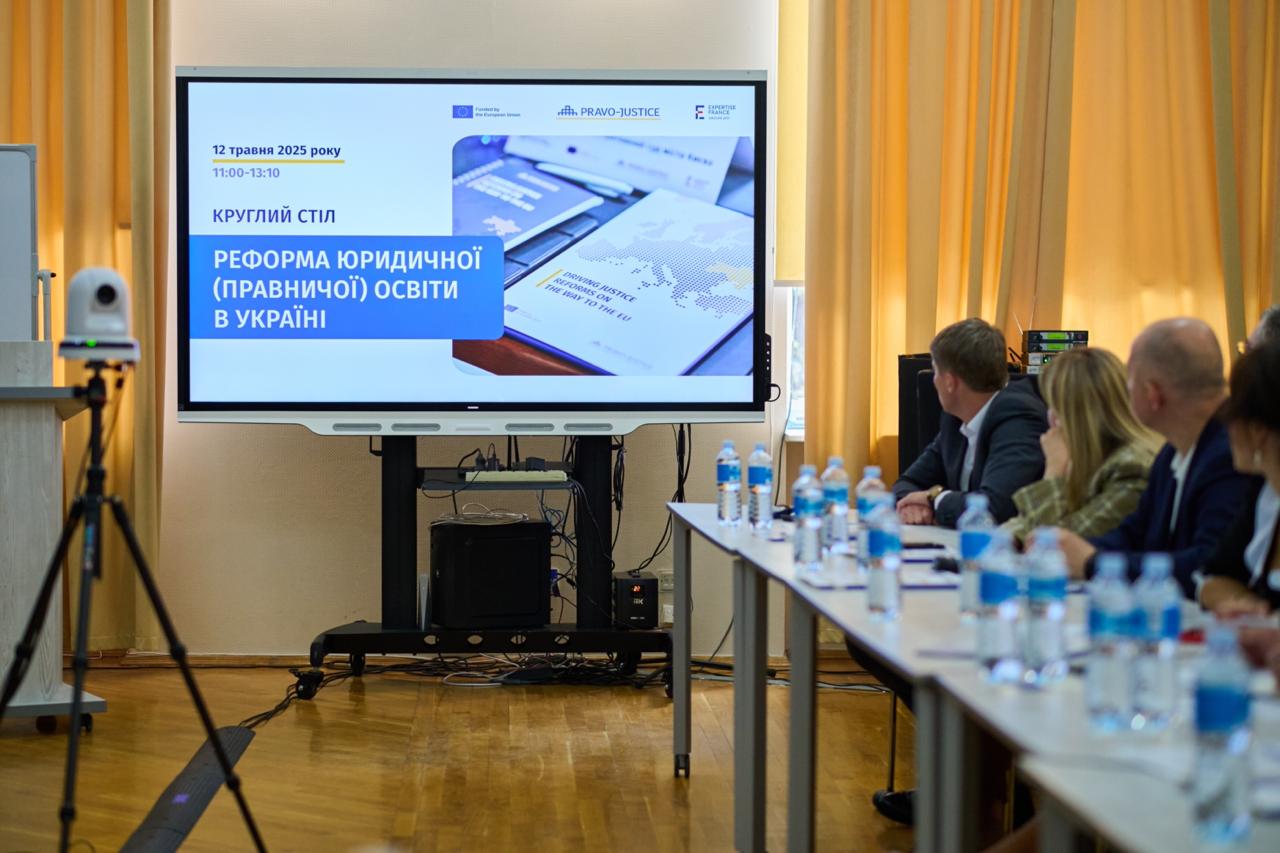
The Taras Shevchenko National University of Kyiv hosted a roundtable on the ‘Reform of Legal Education in Ukraine’ initiated by EU Project Pravo-Justice.
The event brought together legislators, academia, educators, representatives of civil society, as well as international and national experts. The participants discussed the Concept of Legal Education Development in Ukraine, which is expected to form the basis of the draft Law of Ukraine ‘On Higher Legal Education’.
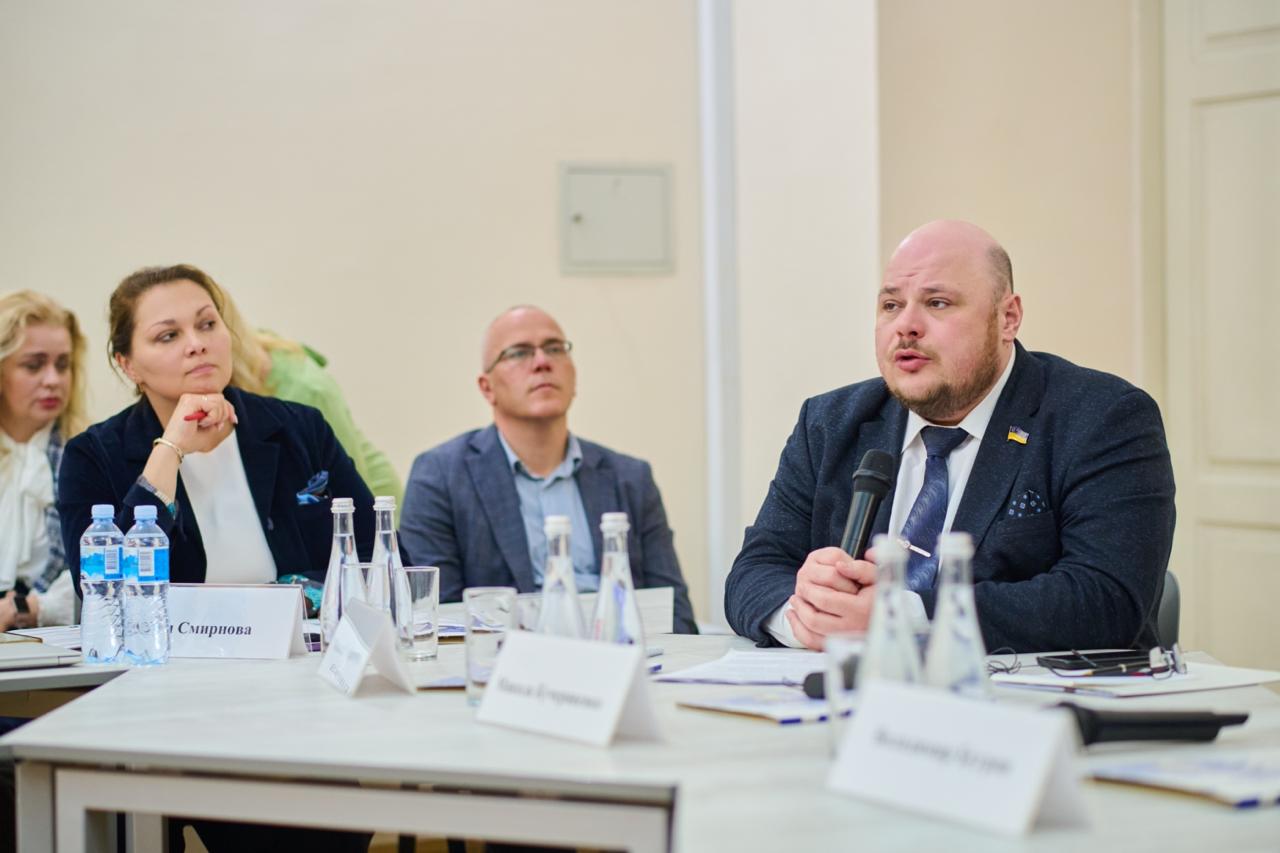
Mykola Stefanchuk, Chairman of the Subcommittee, Member of the Parliamentary Committee on Legal Policy, spoke, among others, about the innovations listed in the draft law. He also shared plans for the implementation of the provisions of the Law and called on the participants to the round table to join the legal profession reform process.
“All of you instinctively know how exactly this should be implemented, how to do it in a correct, safe, and most importantly – effective manner. Therefore, I thank you for coming together before the draft law has got registered, rather than doing so after the registration. As at this stage, each of your ideas can be reflected in this draft law; it can become the basis for a major reform of the legal profession, and I am sure, once you contribute, you will be proud of the increased quality of the legal profession thanks to your intellectual input,” concluded Mr. Stefanchuk.
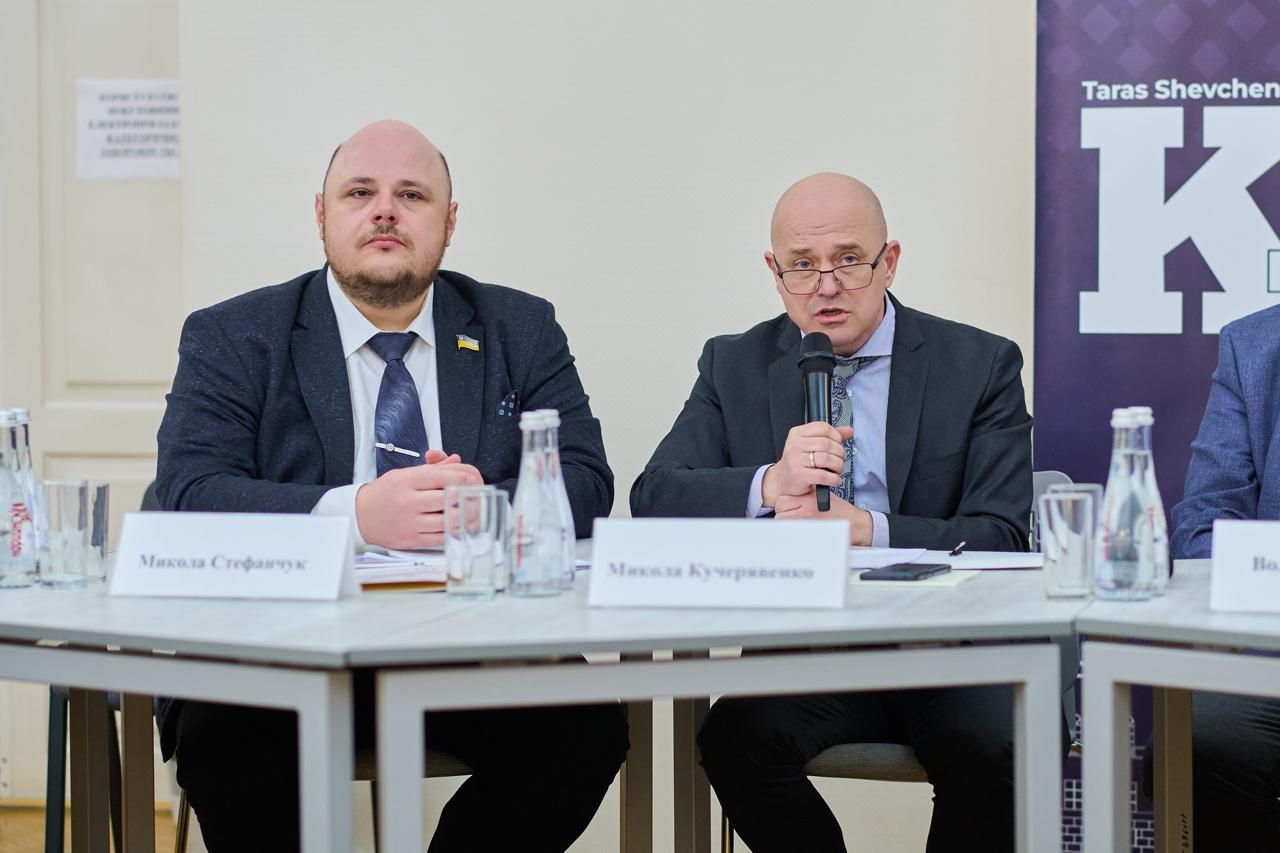
In turn, Mykola Kucheriavenko, First Deputy Minister of Justice of Ukraine, noted that the aspects covered in the Roadmap within the framework of Ukraine’s accession to the EU were also covered in the Concept for Legal Education Development.
“That is why the Ministry of Justice supported the Concept. I believe that the position will remain the same with regard to the draft law. I, personally, feel very much attracted by the continuity of education proposed in this law,” stated Mykola Kucheriavenko.
For his part, Volodymyr Buhrov, Rector of the Taras Shevchenko National University of Kyiv, emphasised that high-quality training of lawyers was one of the strategic goals in those days.
“At the university, we are constantly searching for adequate models of improvement, and I am sure that every step in this direction brings us closer to success,” said Volodymyr Buhrov.
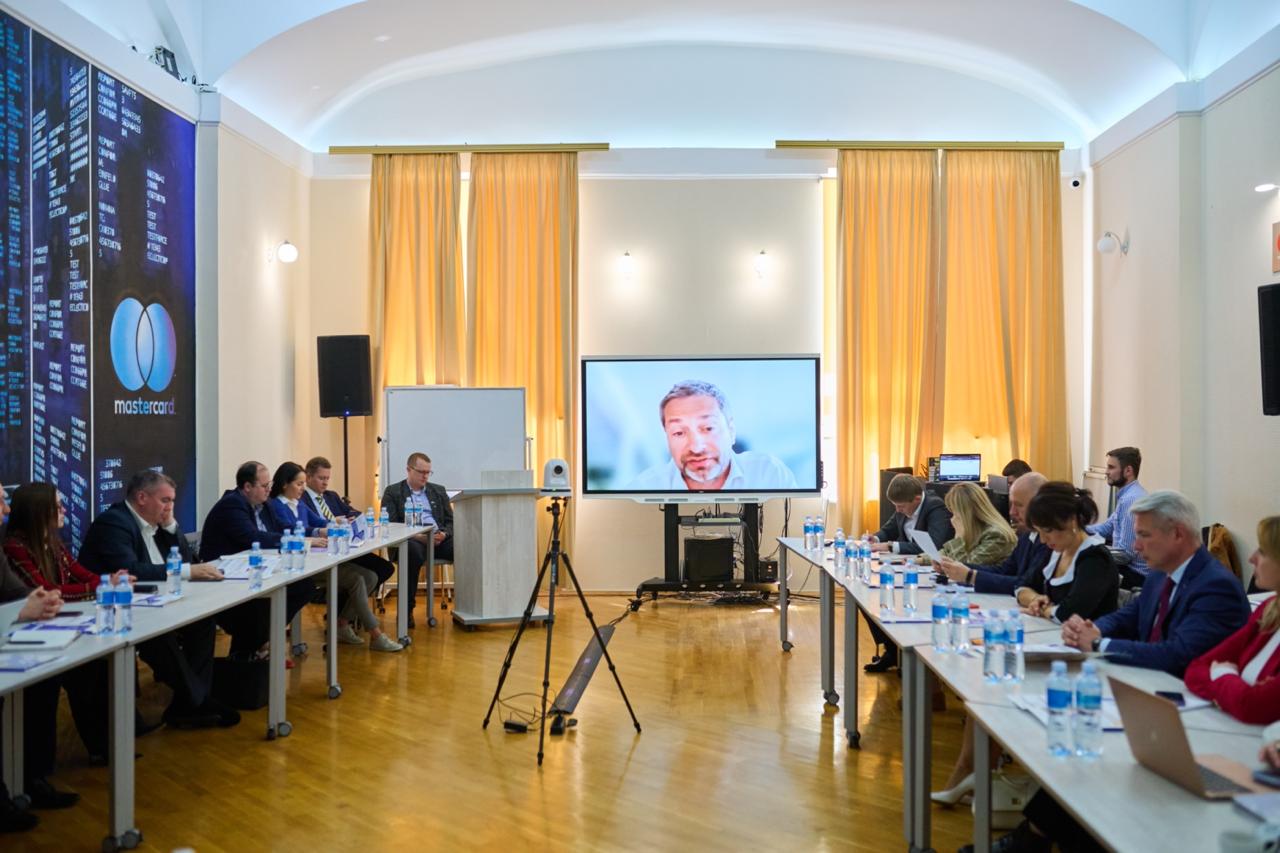
Alban Biaussat, Sector Manager of the EU Delegation to Ukraine, also joined the roundtable. According to him, improving legal education, like many other reforms in the field of the rule of law, is key to increasing the capacity of lawyers. This, in turn, contributes to greater people’s trust in the system and facilitates its sustainable development.
“Modern legal education is not only about formal changes or compliance with standards. It is expected to shape a new generation of lawyers – those with solid academic training, comparable to leading European law schools; able to think critically; and be totally intolerant of corruption. Such an approach is key to building a justice system that meets European values, and to training professionals who will feel confident when working in the EU legal environment,” he said.
Alban Biaussat welcomed the adoption of the Concept of the Draft Law of Ukraine on Higher Legal Education by the Verkhovna Rada Committee on Legal Policy and called for continued intense work to develop a full-fledged draft law. He also assured that the EU would continue providing maximum support to Ukraine’s efforts aimed at reforms in the justice sector, including legal education.
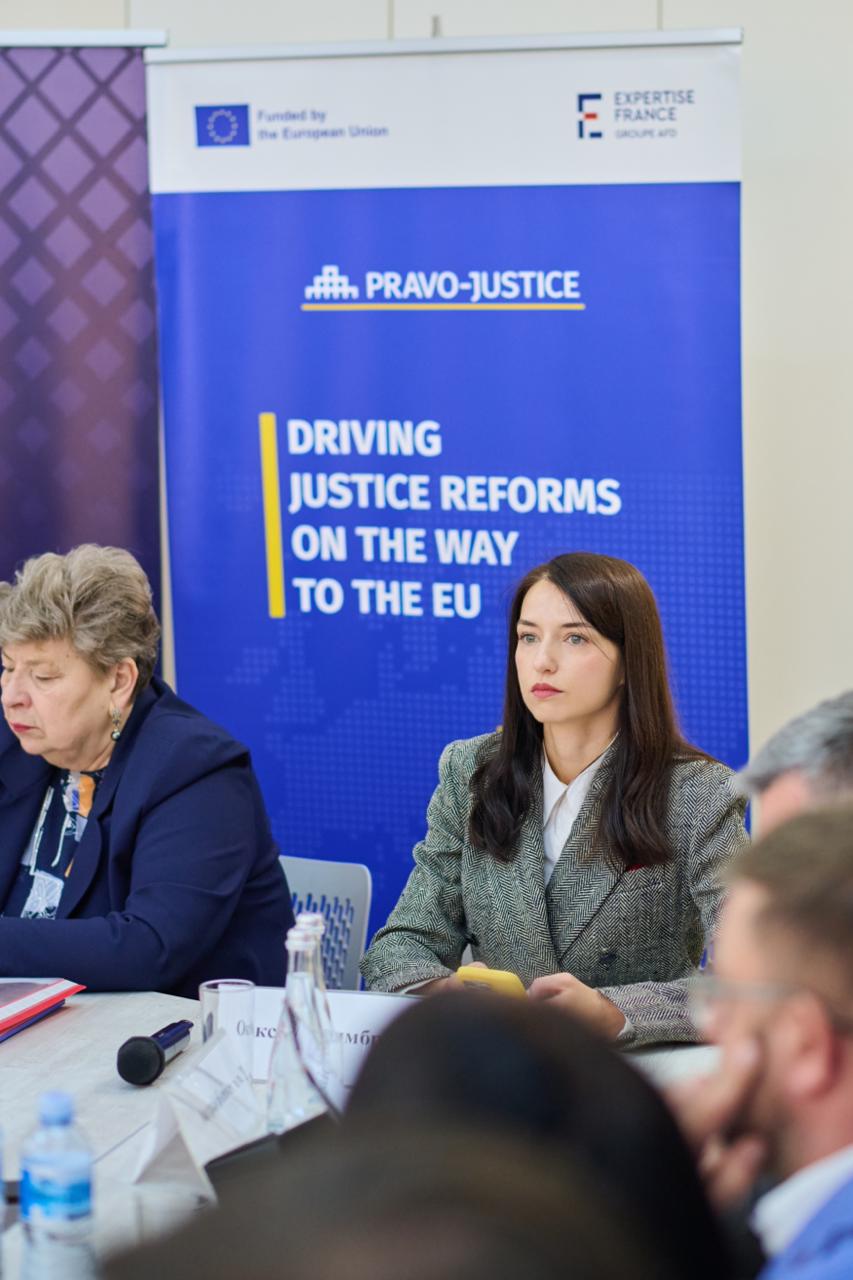
Oksana Tsymbrivska, Team Leader of EU Project Pravo-Justice, emphasised that no reform in the justice sector would be sustainable without new generations of lawyers trained on the basis of high-quality curricula.
“It is important to realise that the path to the European Union implies not only the harmonisation of legislation. It is primarily a change in the way of thinking and practices. Therefore, it is about changes in how we train those who will implement these practices: future judges, prosecutors, lawyers, civil servants. I am convinced that legal education is needed not only for shaping professional in the legal field, but rather for bringing up people who would serve the society through law. This is possible only when education is not only knowledge-based, but also based on values, such as dignity, integrity, and accountability. These are the qualities that should be commonly embedded in the academic environment,” emphasised Oksana Tsymbrivska.
She assured that the Project will continue supporting the Working Group, safeguarding a space for dialogue, and contributing to the implementation of changes in higher legal education that would bring Ukraine closer to the EU.
The Concept of the Draft Law of Ukraine on Higher Legal Education and Primary Access to the Legal Profession is available here.